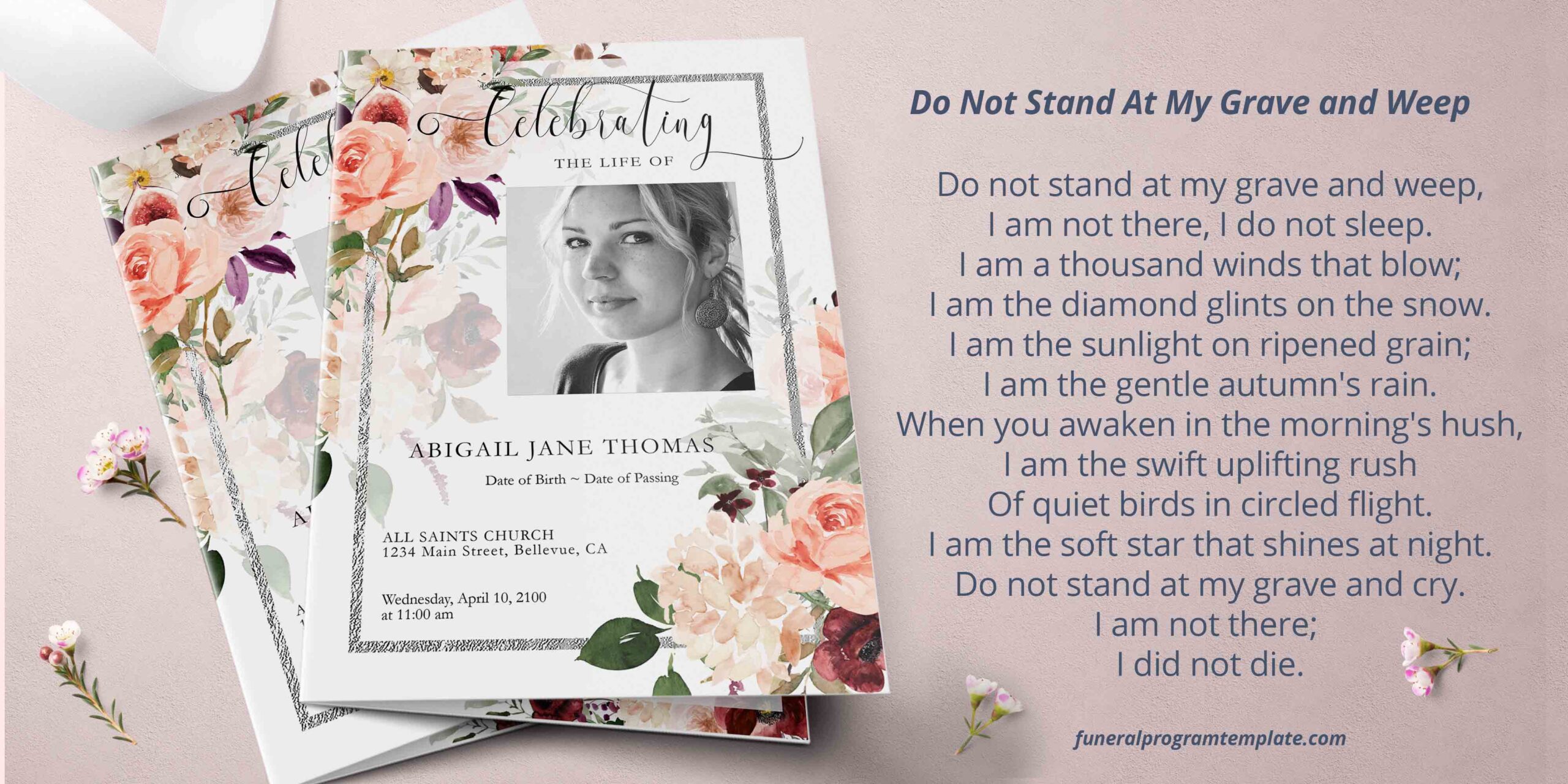
Bidding farewell to a cherished one is invariably difficult, particularly when you yearn to make their parting sincere and unique. One method to accomplish this is through the inclusion of poems for a funeral in the service program.
Funeral poems possess the innate capability to convey feelings that we often find hard to express. This article will introduce seven evocative funeral poems that can beautifully and meaningfully assist you in saying goodbye.
Poems for a funeral provide an incomparable comfort during times of mourning and loss. They function as a powerful means to encapsulate our deepest sentiments. These verses reflect the emotions we wish to communicate while enabling us to remember, mourn, and honor the life of those we’ve lost.
Jump ahead:
- ‘Gone From My Sight‘, also known as the ‘Parable of Immortality’ and ‘What Is Dying’ Henry Van Dyke
- Remember Me by David Harkins
- If I Should Go by Joyce Grenfell
- Do Not Stand By My Grave and Weep by Clare Harner
- She Is Gone by David Harkins
- When I am Dead by Christina Rossetti
- The Parting Glass by Anonymous
Choosing a poem for a funeral service can be an emotionally enriching process, helping us to engage with our emotions and providing a moving tribute to the life and legacy of our loved ones.
In the subsequent segments, we will explore a handpicked assortment of potent poems for a funeral. Each poem selected embodies a spectrum of feelings and reflections associated with bidding farewell to a loved one – ranging from grief and yearning to recollection and appreciation.
As you browse through these poetic tributes, bear in mind that the ideal poem for a funeral is one that aligns with your personal emotions and honours the memory of your departed loved one in a fitting manner.
1. ‘Gone From My Sight’, also known as the ‘Parable of Immortality’ and ‘What Is Dying’ poems for a funeral
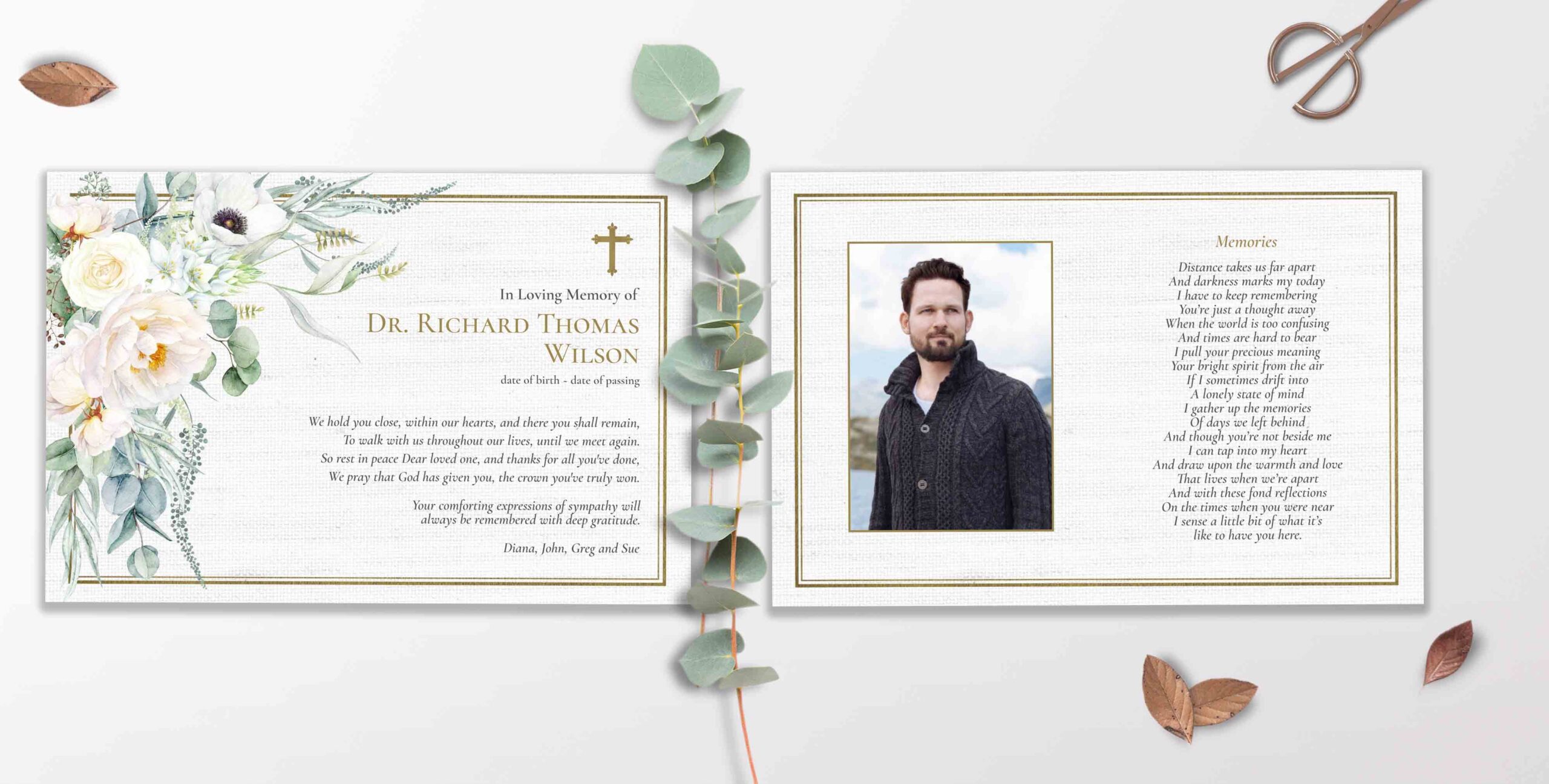
‘Gone From My Sight’, also known as the ‘Parable of Immortality’ and ‘What Is Dying’, is a prose poem that holds profound significance in the realm of poems for a funeral. Although credited to Luther F. Beecher in multiple publications, this funeral poem has often been attributed to Henry Van Dyke due to its inclusion in a widely circulated booklet by Barbara Karnes, RN, entitled ‘Gone from My Sight: The Dying Experience.’
This booklet has been a continuous presence in print since 1985 with over 35 million copies sold, often used by hospice and home health agencies to educate families about end-of-life experiences. The poem, often featured at funerals and memorial services, is among the poignant poems for a funeral that helps to explore the mystery of death.
It presents the act of dying as a ship sailing away, disappearing from sight but not ceasing to exist, offering comfort and a different perspective on loss, a frequent theme in poems for a funeral.
This perspective is a valuable asset in the assortment of poems for a funeral, resonating with personal feelings and paying a fitting tribute to the departed.
Poems for a funeral – Gone From My Sight Henry Van Dyke words:
I am standing upon the seashore.
A ship at my side spreads her white sails to the morning breeze,
and starts for the blue ocean.
She is an object of beauty and strength,
and I stand and watch her until she hangs like a speck of white cloud
just where the sea and sky come down to meet and mingle with each other.
Then someone at my side says: “There! She’s gone!”
Gone where? Gone from my sight—that is all.
She is just as large in mast and hull and spar as she was when she left my side,
and just as able to bear her load of living freight
to the place of her destination.
Her diminished size is in me and not in her.
And just at that moment
when someone at my side says: “There! She’s gone!”
there are other eyes that are watching for her coming;
and other voices ready to take up the glad shout:
“There she comes!”
And that is—”dying.”
2. Reflecting on Remember Me by David Harkins – A Revered Funeral Verse

David Harkins’ deeply touching poem, “Remember Me,” has often been chosen as a fitting tribute for funerals. It poignantly encapsulates the longing for remembrance and the enduring bond shared between the departed and those left behind.
The poem resonates with a heartfelt plea: “Remember me when no more day by day you tell me of our future that you plann’d: only remember me; you understand.”
These profound lines beautifully express the essence of a life filled with shared dreams, love, and understanding. The poem speaks directly to the living, imploring them to carry forward the memory of their departed loved ones.
Poems for a funeral – Remember Me by David Harkins words:
Remember me when I am gone away,
Gone far away into the silent land;
When you can no more hold me by the hand,
Nor I half turn to go yet turning stay.
Remember me when no more day by day
You tell me of our future that you planned:
Only remember me; you understand
It will be late to counsel then or pray.
Yet if you should forget me for a while
And afterwards remember, do not grieve:
For if the darkness and corruption leave
A vestige of the thoughts that once I had,
Better by far you should forget and smile
Than that you should remember and be sad.
Each line resonates with heartfelt sincerity, making it an ideal choice as poems for a funeral. The intricate weave of emotional nuances in this verse offers solace, comfort, and a gentle reminder of the enduring bonds of love and shared memories.
3. If I Should Go by Joyce Grenfell
The verse of ‘If I Should Go’ by Joyce Grenfell subtly weaves a tapestry of acceptance and fond farewell. It reads as follows: “If I should go before the rest of you, break not a flower nor inscribe a stone, nor when I’m gone speak in a Sunday voice.”
These words, tender yet resolute, form a striking contrast to the traditional poems for a funeral. Instead of focusing on the sorrow and loss, the poem invites us to embrace a different perspective, viewing the passing as a part of the natural cycle of life.
Poems for a funeral – If I Should Go by Joyce Grenfell words:
If I should die before the rest of you,
Break not a flower nor inscribe a stone.
Nor, when I’m gone, speak in a Sunday voice,
But be the usual selves that I have known.
Weep if you must,
Parting is hell.
But life goes on,
So…….. sing as well.
Grenfell suggests that no ostentatious display of grief is necessary, as communicated in the line, “break not a flower nor inscribe a stone”. She touches on the idea of carrying forward with the usual cadence of life, rather than being shackled by the weight of mourning.
The line “nor when I’m gone speak in a Sunday voice” particularly stands out, serving as a poignant reminder that the departed would prefer their loved ones to remember them in everyday joys and laughter, rather than in hushed, mournful whispers.
As a poem for a funeral, ‘If I Should Go’ offers an empathetic and respectful approach to the inevitable farewell that awaits us all.
It encourages us to celebrate the lives of the departed, to continue living fully and brightly, and most importantly, to remember them not with sadness, but with the warmth and tenderness of cherished memories.
4. “Do not stand by my grave and weep” is the first line and popular title of the bereavement poem “Immortality“, written by Clare Harner in 1934.
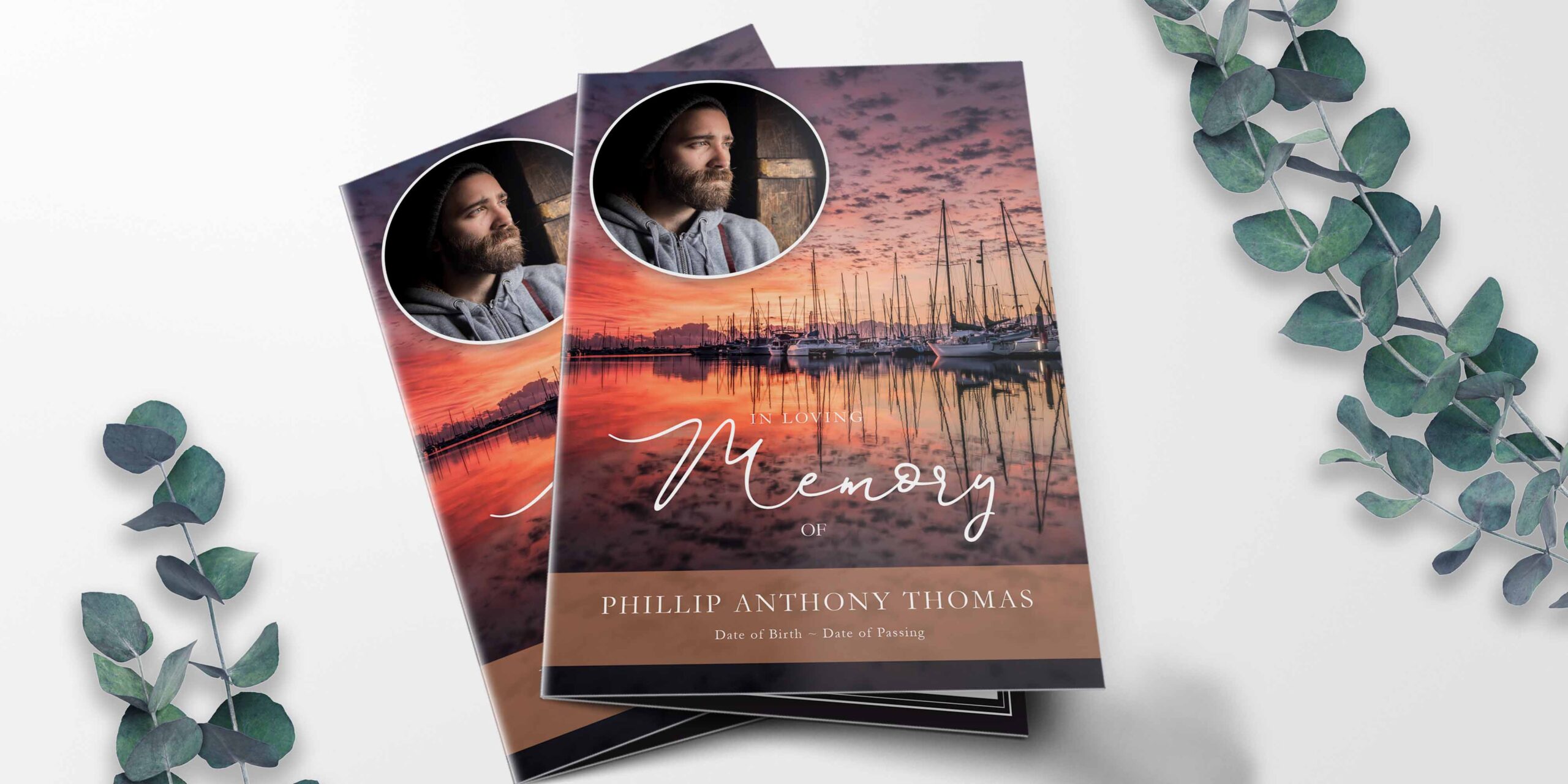
“Immortality” is another poignant example within the realm of poems for a funeral. This poem, penned by Clare Harner, speaks directly to the grieving, urging them not to mourn at the physical location of a grave, but to embrace the immortality of the departed’s spirit instead.
The poem begins with a plea: “Do not stand at my grave and weep,” a line that instantly commands attention and empathy.
It immediately dispels the conventional imagery of sorrowful figures huddled around a grave, substituting it with an invitation to perceive death in a transformative light.
The poem’s essence is wonderfully captured in the lines: “Do not stand at my grave and cry; I am not there. I did not die.”
These lines inspire a shift in perspective, a deviation from the traditional view of death as the end, towards an understanding of death as a mere change of form. It suggests that while the physical body may no longer be present, the spirit lives on, thus breaking the shackles of mortality.
It remains a popular choice in poems for a funeral due to its soothing and uplifting message, providing solace and offering a comforting notion of immortality to those dealing with loss.
Poems for a funeral – Do not stand by my grave and weep by Clare Harner words:
Do not stand
By my grave, and weep.
I am not there,
I do not sleep—
I am the thousand winds that blow
I am the diamond glints in snow
I am the sunlight on ripened grain,
I am the gentle, autumn rain.
As you awake with morning’s hush,
I am the swift, up-flinging rush
Of quiet birds in circling flight,
I am the day transcending night.
Do not stand
By my grave, and cry—
I am not there,
I did not die.
Other versions of the poem appeared later, usually without attribution, such as the one below. Differing words are shown by italics.
Do not stand at my grave and weep,
I am not there, I do not sleep.
I am a thousand winds that blow;
I am the diamond glints on the snow.
I am the sunlight on ripened grain;
I am the gentle autumn’s rain.
When you awaken in the morning’s hush,
I am the swift uplifting rush
Of quiet birds in circled flight.
I am the soft star that shines at night.
Do not stand at my grave and cry.
I am not there; I did not die.
5. She Is Gone by David Harkins
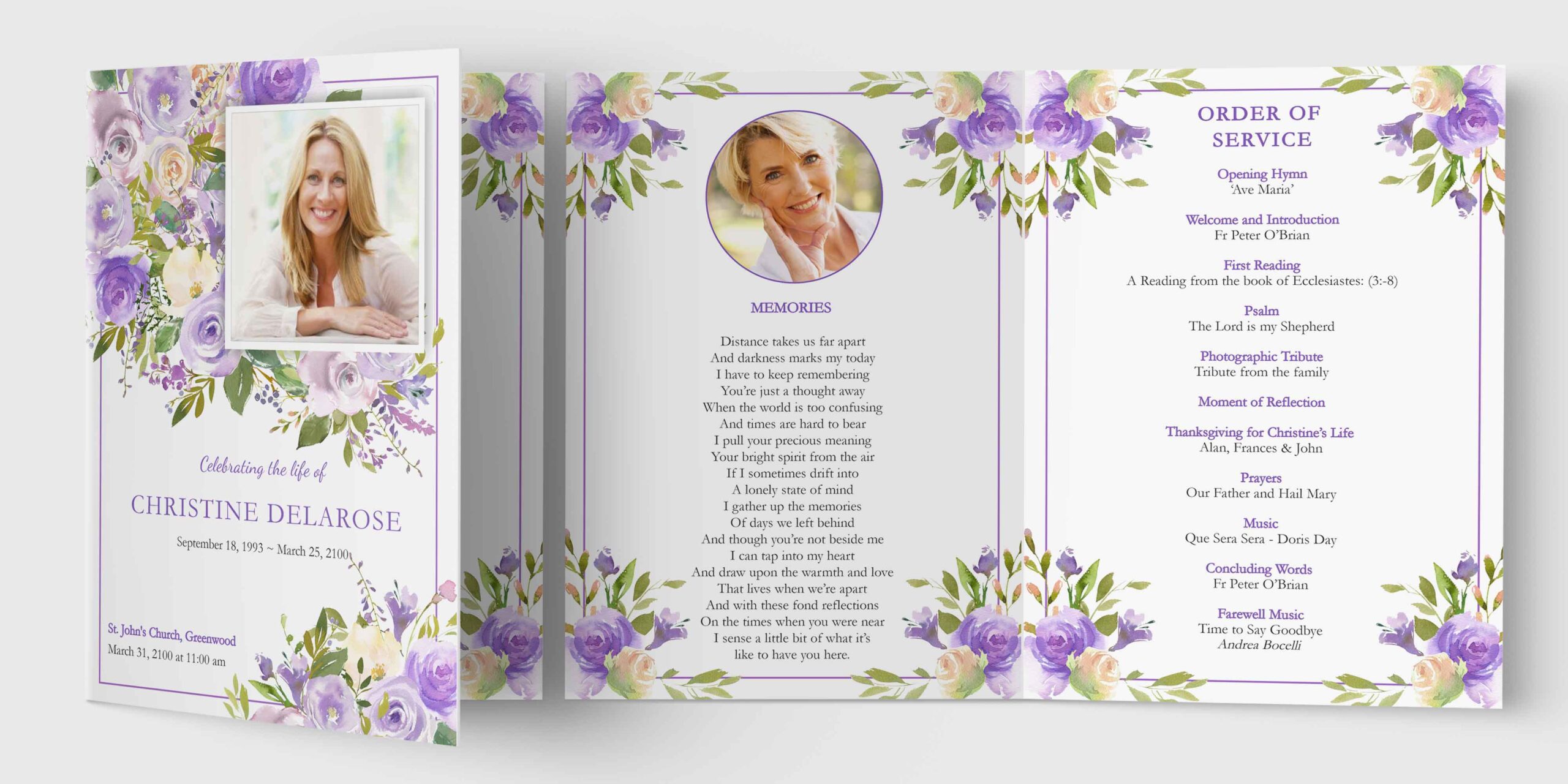
In the realm of poems for a funeral, “She is Gone” serves as a potent reminder of how the essence of our loved ones stays with us even after their departure. It’s seen as a beacon of hope amidst the sorrow and desolation that follows a bereavement.
The phrase “She is Gone – but not forgotten” brings into focus the concept of remembrance, suggesting that the departed continue to live in the memories they’ve left behind. The ability to remember and cherish these memories allows us to keep their spirit alive.
In the line, “She is Gone – but still in our hearts,” Harkins beautifully encapsulates the sentiment that love transcends physical presence. It implies that our bonds with our loved ones are not severed by death, but rather, they shift into a more spiritual dimension.
This idea holds particularly significant value within the context of poems for a funeral, where the focus is on honoring the spiritual continuity of the departed.
In essence, the poem “She is Gone” plays a significant role in the litany of poems for a funeral by offering a perspective that, while acknowledging the pain of loss, also emphasizes the enduring power of love and memory.
It encourages the bereaved to celebrate the life lived, instead of merely mourning the life lost. It teaches us that, in death, our loved ones find a new form of existence, one that is immortalized within our hearts and memories.
Poems for a funeral – She Is Gone by David Harkins words:
You can shed tears that she is gone
Or you can smile because she lived.
You can close your eyes and pray that she will come back
Or you can open your eyes and see all she’s left.
Your heart can be empty because you can’t see her
Or you can be full of the love you shared.
You can turn your back on tomorrow and live yesterday
Or you can be happy for tomorrow because of yesterday.
You can remember her and only that she’s gone
Or you can cherish her memory and let it live on.
You can cry and close your mind, be empty and turn your back
Or you can do what she’d want
– smile, open your eyes, love and go on.
6. When I am Dead by Christina Rossetti
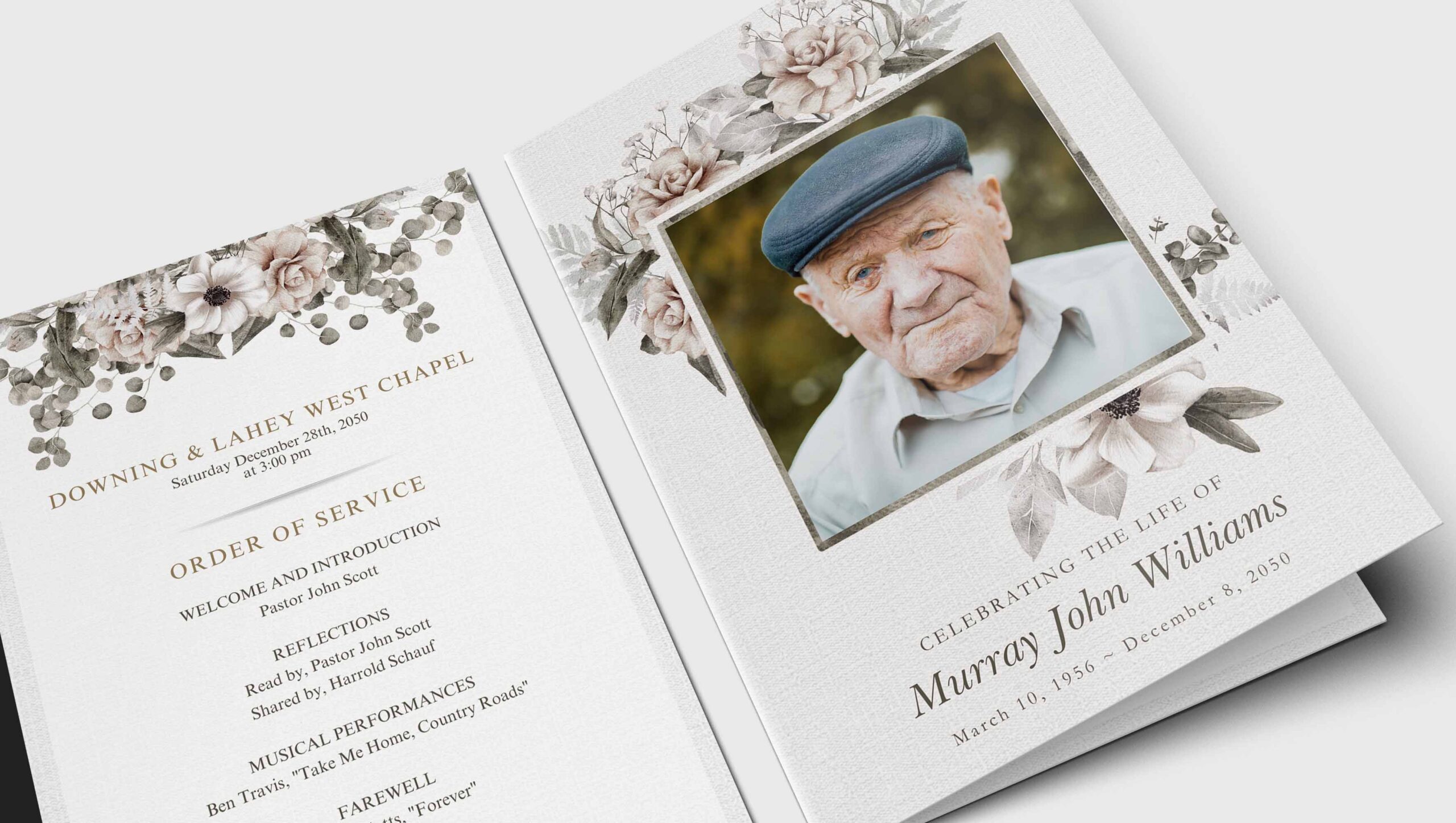
In the context of poems for a funeral, “When I am Dead” by Christina Rossetti presents a comforting perspective on mortality. By stating “Sing no sad songs for me,” Rossetti is gently advising the living to not be overcome by grief.
The poem encourages the celebration of life, asking the bereaved to refrain from lamenting the loss. Instead, it promotes acceptance and forward movement, much like many other poems for a funeral.
The line “Plant thou no roses at my head, Nor shady cypress tree” further accentuates this sentiment. Here, Rossetti emphasizes the impermanence of material expressions of grief, such as flowers or trees, and hints at the enduring nature of love and memories.
This highlights a crucial aspect of poems for a funeral – they often seek to provide solace by emphasizing the everlasting bond of love that transcends physical boundaries.
Moreover, the poem serves as a gentle reminder to the bereaved to continue living their lives with joy and love, a theme often found in poems for a funeral. It underlines the notion that honoring the departed doesn’t solely lie in mourning their departure.
Rather, it lies in cherishing their memories and continuing to live in a manner that they would have wished for us.
In conclusion, “When I am Dead” holds a unique place among poems for a funeral. It subtly intertwines the harsh reality of mortality with the comforting thought of everlasting love and memory, ultimately providing comfort and solace to the bereaved.
Poems for a funeral – When I am Dead by Christina Rossetti words:
When I am dead, my dearest,
Sing no sad songs for me;
Plant thou no roses at my head,
Nor shady cypress tree:
Be the green grass above me
With showers and dewdrops wet;
And if thou wilt, remember,
And if thou wilt, forget.
I shall not see the shadows,
I shall not feel the rain;
I shall not hear the nightingale
Sing on, as if in pain:
And dreaming through the twilight
That doth not rise nor set,
Haply I may remember,
And haply may forget.
7. The Parting Glass by Anonymous
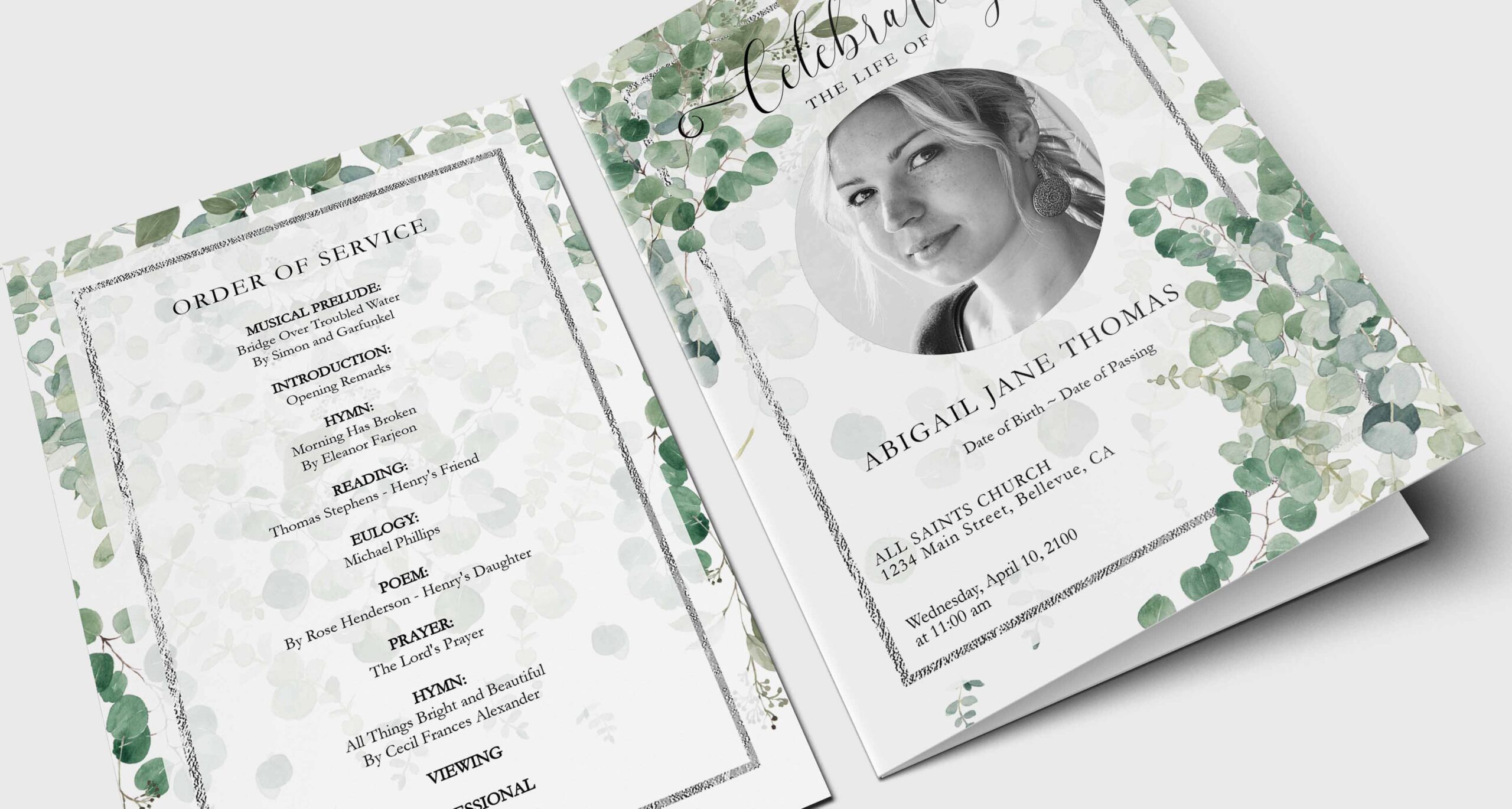
This poem is a traditional Irish farewell. Its lines, “Good night and joy be with you all” express a wish for happiness and contentment for those left behind. The poem’s gentle melody makes it a lovely addition to any funeral service.
“The Parting Glass” holds profound significance among poems for a funeral, particularly due to its heartfelt farewell message. This poem, rich with emotion, resonates strongly with the audience at funerals because of its deeply rooted sentiments of love and parting.
The line, “Good night and joy be with you all” is not just a farewell, but a wish for peace and happiness, offering comfort to the bereaved. This is a frequent theme in poems for a funeral, where the sentiments expressed seek to console the attendees.
The gentle rhythm and tone of the poem also contribute to its appeal as a fitting choice among poems for a funeral. The soothing melody acts as a cathartic outlet, allowing the mourners to express their grief while simultaneously providing a sense of solace.
This again underlines the unique role that poems for a funeral play in offering an avenue for emotional expression and consolation during bereavement.
Moreover, the anonymous authorship of “The Parting Glass,” much like many poems for a funeral, allows for a universal interpretation. It provides a canvas upon which each individual can project their unique feelings of loss and remembrance.
This highlights the inclusive nature of poems for a funeral, offering a shared experience of grief and solace.
In conclusion, “The Parting Glass” epitomizes the essential characteristics of poems for a funeral. It intertwines themes of parting, remembrance, and solace, and its universal appeal makes it a comforting piece during the solemn occasion of a funeral.
Thus, it is a perfect example of how poems for a funeral can provide comfort and emotional release during times of grief and loss.
Poems for a funeral – The Parting Glass by Anonymous words:
Oh all the time that e’er I spent,
I spent it in good company;
And any harm that e’er I’ve done,
I trust it was to none but me;
May those I’ve loved through all the years
Have memories now they’ll e’er recall;
So fill me to the parting glass,
Goodnight, and joy be with you all.
Oh all the comrades that e’er I had,
Are sorry for my going away;
And all the loved ones that e’er I had
Would wish me one more day to stay.
But since it falls unto my lot
That I should leave and you should not,
I’ll gently rise and I’ll softly call
Goodnight, and joy be with you all.
Of all good times that e’er we shared,
I leave to you fond memory;
And for all the friendship that e’er we had
I ask you to remember me;
And when you sit and stories tell,
I’ll be with you and help recall;
So fill to me the parting glass,
God bless, and joy be with you all.
Conclusion:
Funerals are never easy, but incorporating poetry can help us express our emotions, memories and love. Whether you use one of the poems we’ve shared or find another that speaks to you, incorporating poetry into a funeral service can add a meaningful touch.
We hope that these seven poems will help you find the right words to say goodbye to your loved one with poignancy and beauty.
Expanding upon these sentiments, poems for a funeral have an innate power to express what is often too difficult to put into words. They lend a voice to our deepest sorrows, cherished memories, and lingering hopes, helping us navigate the complex terrain of loss.
The individual and collective solace provided by poems for a funeral are a testament to their enduring value during such challenging times.
The selection of poems for a funeral can also be a deeply personal and intimate process. It allows us to honor our loved ones in a way that reflects their unique lives, personalities, and the indelible marks they have left on our hearts.
The range and depth of emotions encapsulated in poems for a funeral can help to truly capture the essence of the life being remembered.
In addition, poems for a funeral often serve as communal expressions of grief, enabling us to share our feelings of loss and remembrance with others. They can foster a sense of unity and mutual support among mourners, reinforcing the value of community and shared experience during such difficult times.
Moreover, the versatile nature of poems for a funeral makes them a fitting tribute across diverse cultural and religious contexts. Their universal themes resonate with people of all backgrounds, reinforcing the shared human experience of loss and the quest for solace and understanding.
Ultimately, the power of poems for a funeral lies in their ability to touch hearts, spark memories, and offer comfort. By helping us articulate our love, our loss, and our longing, they can guide us on our path towards healing.
The beauty and poignancy of these poetic words can illuminate the path towards acceptance, offering a beacon of hope amid the darkness of grief.



